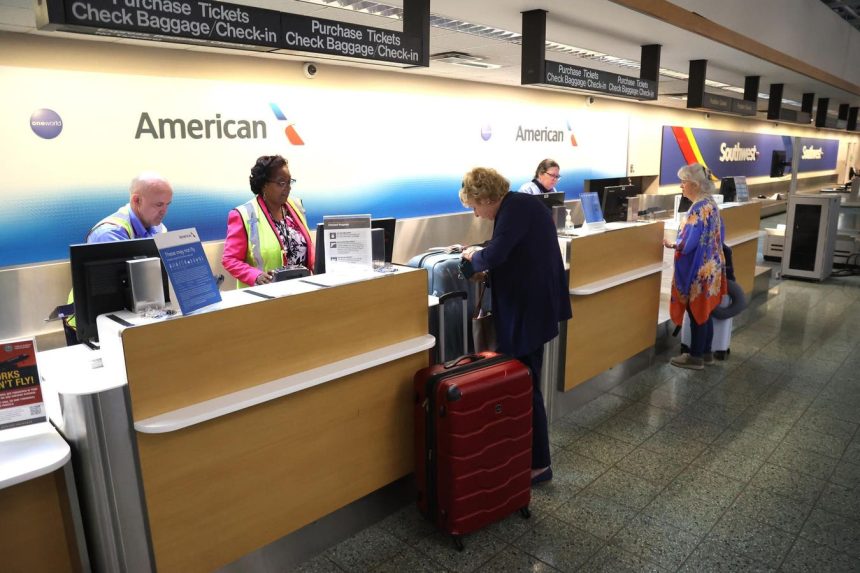The air travel industry, perpetually grappling with the complexities of managing millions of passengers and thousands of flights daily, is finding a powerful ally in artificial intelligence (AI). The chaotic scenes of packed airports, delayed flights, and frustrated travelers, particularly prevalent during peak seasons, are slowly giving way to a more streamlined and efficient travel experience thanks to the integration of AI-powered solutions. This transformation is not merely about technological advancement but represents a fundamental shift in how the industry operates, impacting everything from operational efficiency and cost reduction to passenger satisfaction and overall safety. AI’s ability to analyze vast amounts of data, identify patterns, and make predictions is proving invaluable in addressing the inherent challenges of air travel.
One of the most significant contributions of AI lies in its capacity to diagnose and address flight delays, a perennial source of frustration for passengers and a major cost driver for airlines. By meticulously tracking every stage of the airplane turnaround process – from baggage handling and aircraft cleaning to passenger boarding and refueling – AI can pinpoint bottlenecks and inefficiencies. This granular level of analysis, impossible to achieve through manual methods, provides airport personnel with real-time insights into the causes of delays, empowering them to take corrective action swiftly and effectively. Furthermore, AI’s predictive capabilities allow for proactive intervention, forecasting potential disruptions based on historical data and real-time conditions, enabling airlines to mitigate the impact of unforeseen events and maintain on-time performance.
Beyond simply reacting to delays, AI is also revolutionizing the way airlines manage their operations. Through predictive analytics, AI can optimize gate assignments, aircraft utilization, and personnel deployment, minimizing idle time and maximizing resource efficiency. This not only leads to significant cost savings but also contributes to the industry’s sustainability goals by reducing fuel consumption and emissions. The aviation industry, under increasing pressure to reduce its environmental footprint, can leverage AI to achieve greater operational efficiency while simultaneously minimizing its impact on the planet. This dual benefit underscores the transformative potential of AI in driving a more sustainable future for air travel.
Safety, another paramount concern in aviation, is also being enhanced through AI-powered solutions. AI platforms can monitor various aspects of airport operations, identifying potential safety hazards and reporting violations in real time. From detecting improperly loaded baggage to identifying unauthorized personnel in restricted areas, AI acts as an vigilant observer, augmenting existing security measures and contributing to a safer airport environment. This heightened level of security not only protects passengers and staff but also instills greater confidence in the overall air travel experience.
The passenger experience, often marred by long lines, confusing navigation, and unexpected delays, is also undergoing a significant transformation thanks to AI. AI-powered tools can optimize check-in processes, provide personalized travel information, and even predict potential disruptions, allowing passengers to make informed decisions and minimize stress. From streamlining baggage handling to offering customized in-flight services, AI is paving the way for a more seamless and enjoyable travel experience. This focus on passenger-centric solutions is key to building customer loyalty and enhancing the overall perception of air travel.
The economic implications of AI integration in the aviation industry are profound. By minimizing delays and optimizing operations, airlines can significantly reduce costs associated with wasted fuel, labor, and passenger compensation. This improved efficiency translates into increased profitability, allowing airlines to invest in further innovation and enhance their services. Moreover, the reduction in travel time and increased productivity for passengers contribute to overall economic growth. By streamlining the travel experience and minimizing disruptions, AI unlocks economic potential on both a micro and macro level, benefiting not only the aviation industry but the global economy as a whole.
In conclusion, AI is no longer a futuristic concept in the aviation industry but a tangible force driving significant improvements across the board. From optimizing operations and enhancing safety to improving the passenger experience and contributing to economic growth, AI is reshaping the way we fly. By harnessing the power of data analysis and predictive modeling, the industry is moving towards a future where air travel is not only more efficient and sustainable but also more enjoyable and accessible for everyone. The integration of AI is not just about technological advancement; it’s about building a more connected, efficient, and sustainable future for the aviation industry and the world.



